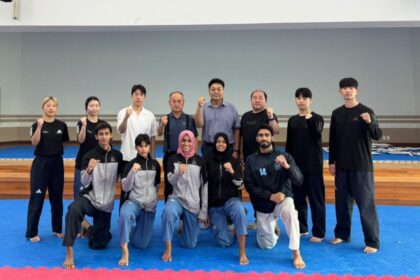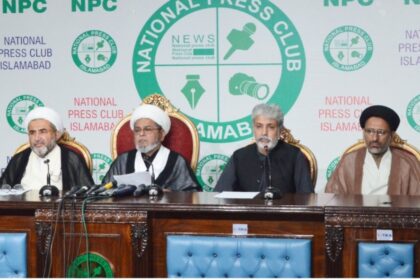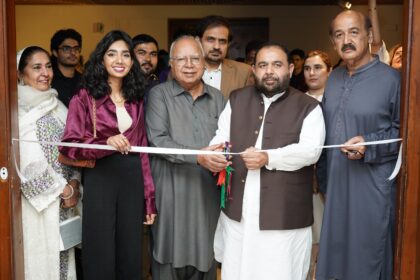India, once revered globally as the world’s largest secular democracy, is undergoing a troubling shift towards a majoritarian political system driven by the Hindutva ideology under Prime Minister Narendra Modi and his Bharatiya Janata Party (BJP). This transformation has led to increasing marginalization, discrimination, and violence against minorities, particularly Muslims, Dalits, and Christians.
This ideological shift toward Hindutva originates from the Rashtriya Swayamsevak Sangh (RSS), the BJP’s parent organization, which advocates for a “Hindu Rashtra” (Hindu nation). Hindutva differs from the diverse traditions of Hinduism by insisting that India is primarily a nation for Hindus. Since Modi’s rise to national power in 2014, the Hindutva narrative has significantly influenced political discourse, education, policymaking, and state institutions, eroding India’s foundational ethos of secularism and pluralism.
The Citizenship Amendment Act (CAA) and the National Register of Citizens (NRC) highlight the institutionalization of religious discrimination. The CAA, enacted in 2019, explicitly excludes Muslims by fast-tracking citizenship only for non-Muslim refugees from neighbouring countries. This unprecedented step introduces religion as a qualification for citizenship. Moreover, the proposed NRC requires Indian citizens to prove citizenship through documentation, disproportionately threatening marginalized Muslims who often lack adequate records. In Assam, implementation of a similar NRC already left nearly 1.9 million people—mostly Muslims and Bengali Hindus—stateless.
These policies have created widespread fear among India’s approximately 200 million Muslims, the nation’s largest religious minority. Observers note that these moves aim to disenfranchise Muslim communities and undermine their legitimacy as citizens.
Concurrently, hate speech targeting minorities has become commonplace among senior BJP figures without significant consequence. BJP-supported rallies have openly featured inflammatory slogans, such as “Desh ke gaddaron ko, goli maaro saalon ko” (“Shoot the traitors of the nation”). Prominent BJP leaders’ silent or overt support for this rhetoric has dangerously normalized hatred and violence against minorities.
This normalization has resulted in significant increases in street-level violence and mob lynchings, primarily targeting Muslims accused of cow-related offenses. Groups known as “Gau Rakshaks” (Cow Protection Squads) operate with virtual impunity, publicly humiliating and violently assaulting victims. Police responses often have been passive or antagonistic towards victims. A notable example is the lynching of dairy farmer Pehlu Khan; despite clear video evidence, the accused attackers were acquitted, reflecting a justice system increasingly unwilling or unable to protect minority rights from violations perpetrated by Hindutva-affiliated groups.
Dalits and Christians also experience growing violence and discrimination. Churches have been attacked, pastors targeted, and Christian tribals pressured to convert to Hinduism under the “ghar wapsi” (homecoming) campaigns. Dalit communities, traditionally marginalized within India’s caste system, face brutal repression, including public beatings, sexual assault, and murder. Perpetrators affiliated with upper-caste or BJP-associated groups are often shielded politically from accountability.
Dissent against these injustices is systematically suppressed. Activists, academics, students, and journalists contesting government policies and abusers face harsh measures under laws such as the Unlawful Activities (Prevention) Act (UAPA) and sedition laws. Human rights advocates have been detained without proper legal recourse, accused of anti-national activities merely for condemning violence and discrimination. Similarly, media independence has severely diminished, with news outlets becoming vehicles for state propaganda and sensationalized reporting, distracting citizens from genuine socio-economic issues.
The international community, including the United Nations, US Commission on International Religious Freedom (USCIRF), and various human rights organizations, has strongly criticized India’s move towards sectarianism. Yet internal political opposition remains fragmented and hesitant, wary of being portrayed as “pro-Muslim”. This political caution further entrenches communal divisions, permitting the spread of hate and fear to persist unchecked.
India stands at a critical crossroads. The nation faces profound moral and existential challenges as constitutional guarantees of liberty, equality, and fraternity are increasingly undermined by the Hindutva agenda. Modi’s political project threatens to redefine India as a Hindu nationalist state, normalizing violence against minorities, weaponizing laws against dissent, and compromising the dignity and freedom of its diverse citizenry.
Addressing this dangerous shift is critical—not just for preserving India’s secular democratic traditions, but also for defending universal principles of democratic accountability and human dignity. Silence and complicity at this juncture risk irreversible losses. It is now up to India’s civil society, democratic institutions, and citizenry to reclaim the inclusive vision originally pledged by its founding leaders before it becomes too late.











